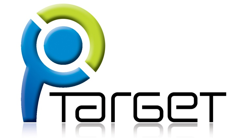
Call for proposals
The project was cofinanced under EU FP7, ICT: Digital Libraries and Technology-Enhanced Learning
Duration
1.1.2009 do 31.7.2012
Project website
Contact person at IRI UL
Project Consortium
- SINTEF – The Foundation for Scientific and Industrial Research at the Norwegian Institute of Technology (NO)
- Norwegian University of Science and Technology (NO)
- ALFAMICRO – Sistema de Computadores (Lda (P))
- Cyntelix Corporation (Ltd (NL))
- eXact learning solutions S.p.A. (IT)
- Aalto University (FI)
- Instituto de Engenharia de Sistemas e Computadores, Investigação e Desenvolvimento em Lisboa (P)
- Nokia Corporation (FI)
- Siemens Aktiengesellschaft Oesterreich (A)
- Graz University of Technology, Knowledge Management Institute (A)
- University College London (UK)
- Clear Communication Associates (UK)
- Bremer Institut für Produktion und Logistik GmbH (D)
- Inovacijsko-razvojni inštitut Univerze v Ljubljani (SI)
- Lean Enterprise Institute Polska (PO)
- Politecnico di Milano (IT)
- Virtech (BG)
Key challenge
In today’s era of constant change, companies need individuals who can quickly adapt to current conditions, where an increasing number of tasks are unplanned and atypical—requiring swift, independent, and competent decision-making. These continuous and dynamic changes raise questions about the quality and, especially, the practical applicability of knowledge gained through traditional educational methods. Education science experts emphasize that learning should not rely solely on the outdated transfer of knowledge from teacher to student. Effective learning occurs in rich contexts that should closely simulate real work situations and challenges.
Aim
The main aim of the TARGET Project is to research, analyse, and develop a new genre of Technology Enhanced Learning (TEL) environment that supports rapid competence development of individuals, namely knowledge workers within the domains of project management, innovation and sustainable global manufacturing.
Goals
The TARGET aims will be realized through the following specific objectives:
- Conceptual Framework, corresponding to the functional blueprint of TARGET
- Knowledge model, how the stories, concept thresholds, and competences are related
- TARGET Learning Process, supported by the TARGET Platform
- TARGET Platform, following a component based architectural design to support incremental deployment
- Pedagogical Agents, available to assume unfilled roles within a game scenario as Non-Player Characters (NPCs) and Artificial Mentor to support the learning process
- TARGET Communities, revolving around the TARGET environment
- HRM Integration, integration of TARGET within the information system of an organization
- Evaluation Framework, for assessing a learner’s competence development.

